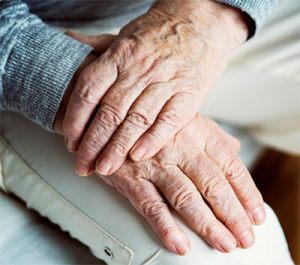

Social isolation (being alone), and loneliness (feeling alone) are well-known risk factors for poor health outcomes. Even prior to the COVID-19 pandemic, researchers were becoming increasingly concerned with high rates of loneliness and social isolation reported across Europe, the United States and China, particularly in the older adult population. So much so, that the term “behavioural epidemic” was applied to this phenomenon. Although Canadian research in 2015 indicated that this trend was not as much of a concern in our country, individuals experiencing financial stressors or lacking social support were shown to be more vulnerable to feelings of loneliness. Both variables are more prevalent during this pandemic, and social distancing requirements have made even those of us with ample social support feel lonely at times. We are being asked to get through this difficult time by staying apart, which runs contrary to our instincts to be physically close to those we trust during times of threat. This is the very instinct that has enabled our survival as a species.
Loneliness is a subjective feeling that can cause emotional and physical distress. Loneliness can lead individuals to feel unsafe, which in turn triggers the threat-detection response. After all, if one is alone in their environment, they must be hypervigilant in order to survive. The harmful health effects of loneliness are similar to those created by other chronic stressors and can include cardiovascular and gastrointestinal issues, depression and anxiety, and cognitive decline to name a few.
The question is, “How can we reduce our sense of loneliness given the current COVID-19-related restrictions?” In a recent interview, neuroscientist Stephanie Cacioppo suggested focusing on the present moment and avoiding the tendency to let one’s mind wander too far into the future. She also recommends acknowledging what you control, and developing a routine that provides your life with some degree of structure. In addition, Cacioppo recommends using breath work to calm the anxiety associated with feelings of loneliness. Research has shown that exhaling a few seconds longer than inhaling more effectively activates the relaxation response.
Cultivating the mindfulness skill of maintaining acceptance and calmness toward experiences in daily life may decrease feelings of threat associated with loneliness, according to researchers. As defined by Jon Kabat-Zinn, developer of the Mindfulness-Based Stress Reduction Clinic at the University of Massachusetts Medical School, “Mindfulness is awareness, cultivated by paying attention in a sustained and particular way: on purpose, in the present moment, and non-judgmentally.” Research in this area suggests that holding painful feelings in our awareness and simply accepting them as they are can change the quality of our emotional experiences.
Reaching out to others in creative ways can also reduce loneliness. Whether it be through virtual platforms such as Zoom, Skype, or Google Hangouts, or calling a friend you haven’t spoken to in a long time, Cacioppo encourages us to consciously interact with others in an authentic way. In this way, she is referring to sharing your feelings and actively listening to the other person. Genuine reciprocal self-disclosure creates a more meaningful interaction and is key to reducing feelings of loneliness.
A number of programs offered by McCormick Dementia Services can assist you with reducing isolation and loneliness, including Zoom recreation activities, caregiver support groups, and individual support via Zoom or by phone. One of our Zoom programs provides a guided relaxation meditation, which clients and caregivers report has helped combat feelings of anxiety. We encourage you to reach out for support during this time of uncertainty. We will get through this together, even if we have to stay apart!
Submitted by Social Work Staff at McCormick Dementia Services.